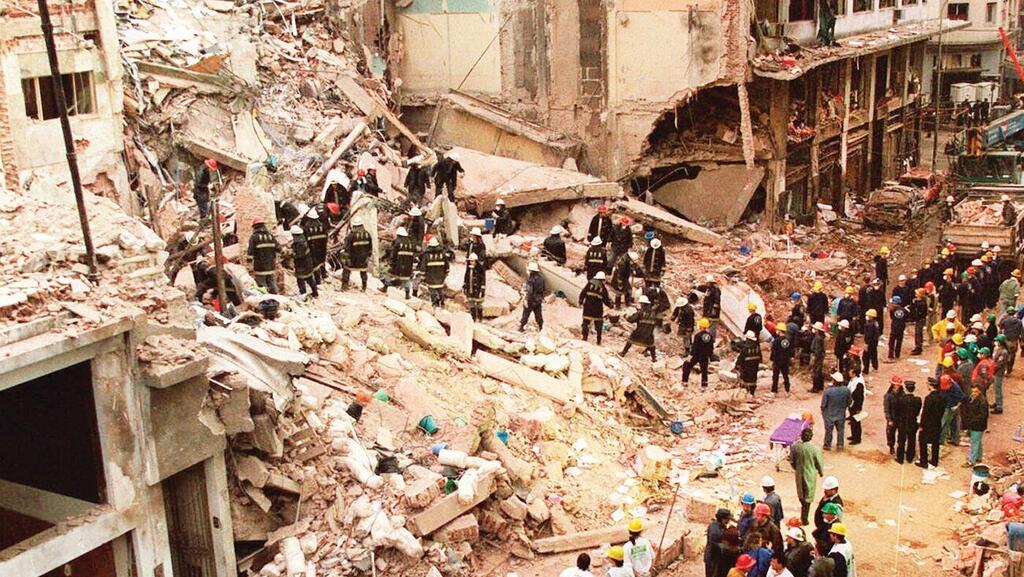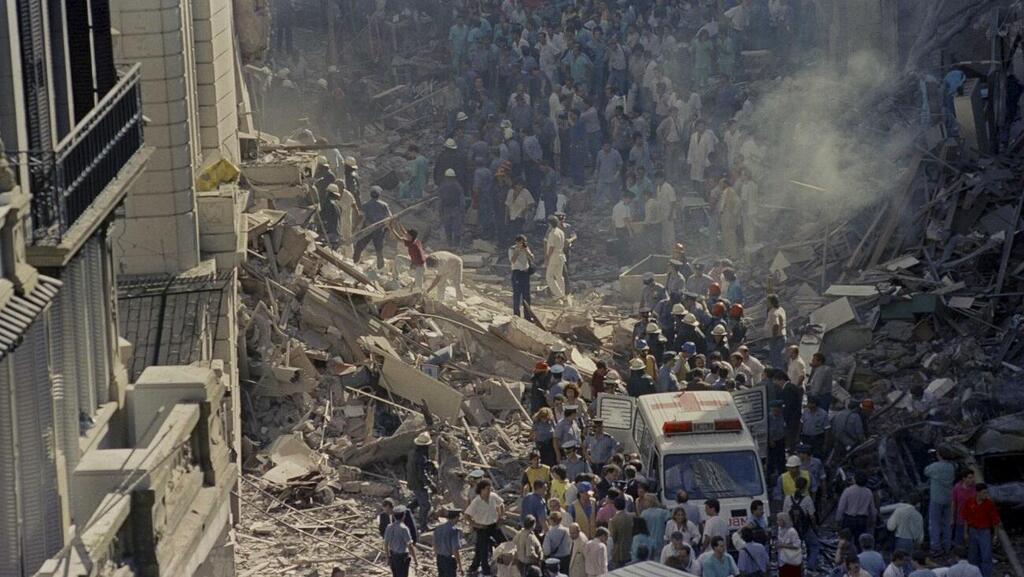Getting your Trinity Audio player ready...
An Argentine court on Thursday said Iran had ordered the deadly 1992 attack on Israel's embassy in Buenos Aires and the 1994 attack on the Asociacion Mutual Israelita Argentina (AMIA) Jewish center, local media reported.
The ruling, cited by press reports, said Iran had ordered the attack in 1992 on Israel's embassy and the 1994 attack on the Argentine Israelite Mutual Association (AMIA) Jewish center.
The court also implicated the Iran-backed Shiite movement Hezbollah and called the attack against the AMIA -- the deadliest in Argentina's history -- a "crime against humanity," according to court documents cited by media reports.
"Hezbollah carried out an operation that responded to a political, ideological and revolutionary design under the mandate of a government, of a State," Carlos Mahiques, one of the three judges who issued the decision, told Radio Con Vos, referencing Iran.
In 1992, a bomb attack on the Israeli embassy left 29 dead. Two years later, a truck loaded with explosives drove into the AMIA Jewish center and detonated, leaving 85 dead and 300 injured.
The 1994 assault has never been claimed or solved, but Argentina and Israel have long suspected Lebanon's Shiite Hezbollah group carried it out at Iran's request.
Prosecutors charged top Iranian officials with ordering the attack. Tehran has denied any involvement.
Argentina has the largest Jewish community in Latin America, with some 300,000 members.
It also is home to immigrant communities from the Middle East -- from Syria and Lebanon in particular.
The judges ruled Thursday that the AMIA attack was a crime against humanity, and put blame on then-president Ali Akbar Hashemi Bahramaie Rafsanjani as well as other Iranian officials and Hezbollah members.
The decision was welcomed by the president of the Delegation of Israelite Associations of Argentina (DAIA), Jorge Knoblovits. He told Radio Mitre the ruling "is very important, because it enables the victims to go to the International Criminal Court."
Former Argentine president Carlos Menem, who died in 2021 and was the president at the time of both attacks, was tried for covering up the AMIA bombing, but ultimately acquitted.
His former intelligence chief Hugo Anzorreguy was sentenced to four-and-a-half years in jail for his role in obstructing the probe.
He was among some dozen defendants who faced a slew of corruption and obstruction of justice charges in the case, including the former judge who led the investigation into the attack, Juan Jose Galeano, who in 2019 was jailed for six years for concealment and violation of evidence.



